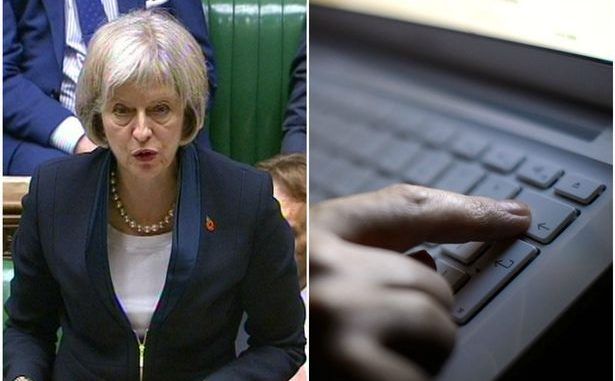
The powers of British police will be extended in the new draft of the ‘snoopers’ charter’ to allow them to hack into phones and access people’s web browsing histories for routine investigations.
The extension of police powers contained in the revised investigatory powers bill – which was published on Tuesday- shows just how determined the home secretary Theresa May is to get her legislation on to the statute book by the end of the year despite sweeping criticism by three separate parliamentary committees in the past month.
Human rights campaigners, privacy activists and cross-party MPs signed an open letter urging the government not to rush the legislation through Parliament to ensure MPs have enough time to properly scrutinize it.

BYPASS THE CENSORS
Sign up to get unfiltered news delivered straight to your inbox.
You can unsubscribe any time. By subscribing you agree to our Terms of Use
RT reports:
Home Secretary Theresa May said the new legislation reflected the majority of the 122 recommendations made my MPs and peers by addressing issues concerning privacy protections, oversight arrangements and strengthened safeguards.
The Conservatives are touting the ‘snoopers’ charter’ as the first comprehensive legal framework for state surveillance in the world and hope to push it through Parliament this year.
May’s revised draft has been amended to reflect worries within the technology industry that surveillance laws would undermine or break encryption. The bill does not require companies to remove encryption of their own services if it is not technically feasible and it stipulates the projected costs will be taken into account.
The revised bill:
• Extends the use of remote computer hacking from the security services to major police forces and the National Crime Agency. This can only be used in cases involving missing persons or a “threat to life” including “damage to somebody’s mental health.”
• Gives police the power to access all web browsing records in specific crime investigations, an expansion on the original bill’s limitations to illegal websites and communications services.
• Introduces a ‘double lock’ for interception warrants, meaning that they must be approved by a minister and a judge.
• Introduces stronger protections for journalists and lawyers and six codes of practice setting out how the powers will be used.
Amnesty International UK director Kate Allen accused the government of ignoring advice from its own parliamentary committees and “every privacy group in the country.”
“It beggars belief that the government is blundering on with its snooping power-grab completely disregarding the concerns being raised from all sides, including no fewer than three of its own parliamentary committees, every privacy group in the country, the UN and tech firms like Apple.
“It’s like adding extra storeys to a burning building. Even the USA is rolling back its surveillance systems because of concerns over people’s right to privacy.”
Allen said the bill attempts to go too far, too fast without including basic protections such as independent judicial oversight.
“By rushing the supposed ‘redraft’ of this huge and complex bill through an impossibly short timetable, the government is showing contempt for parliament – every one of the three committees of parliamentarians who have considered their plans told them they needed serious work.
“This unseemly haste to push on without then giving the bill due time suggests a complete disregard for those consulted and the unanimous concerns raised.”
Renate Samson, chief executive of Big Brother Watch, replied to the publication of the Investigatory Powers Bill:
“The Government are squandering a golden opportunity to create a law fit for the digital age.
“By publishing hundreds of pages of clauses and codes of practice less than a month after the proposals were so roundly criticised by three parliamentary committees, the Home Office have shown a complete disregard for the process of parliamentary scrutiny.
“Surveillance is no longer a niche issue. In a connected world, where everyone is a digital citizen, these powers will impact us all.”
Human rights campaigners, privacy activists and cross-party MPs signed an open letter, published in the Telegraph on Tuesday, calling on the government to delay the Investigatory Powers Bill until next year.
The letter, signed by Tory MP and former Shadow Home Secretary David Davis, urges the government not to rush the legislation through Parliament to ensure MPs have enough time to properly scrutinize it.
Campaign groups Liberty, Big Brother Watch and Privacy International joined Amnesty International UK and Open Rights Group in signing the letter.
Other notable signatories include Liberal Democrat leader Tim Farron, Green Party MP Caroline Lucas and Law Society president Jonathan Smithers


